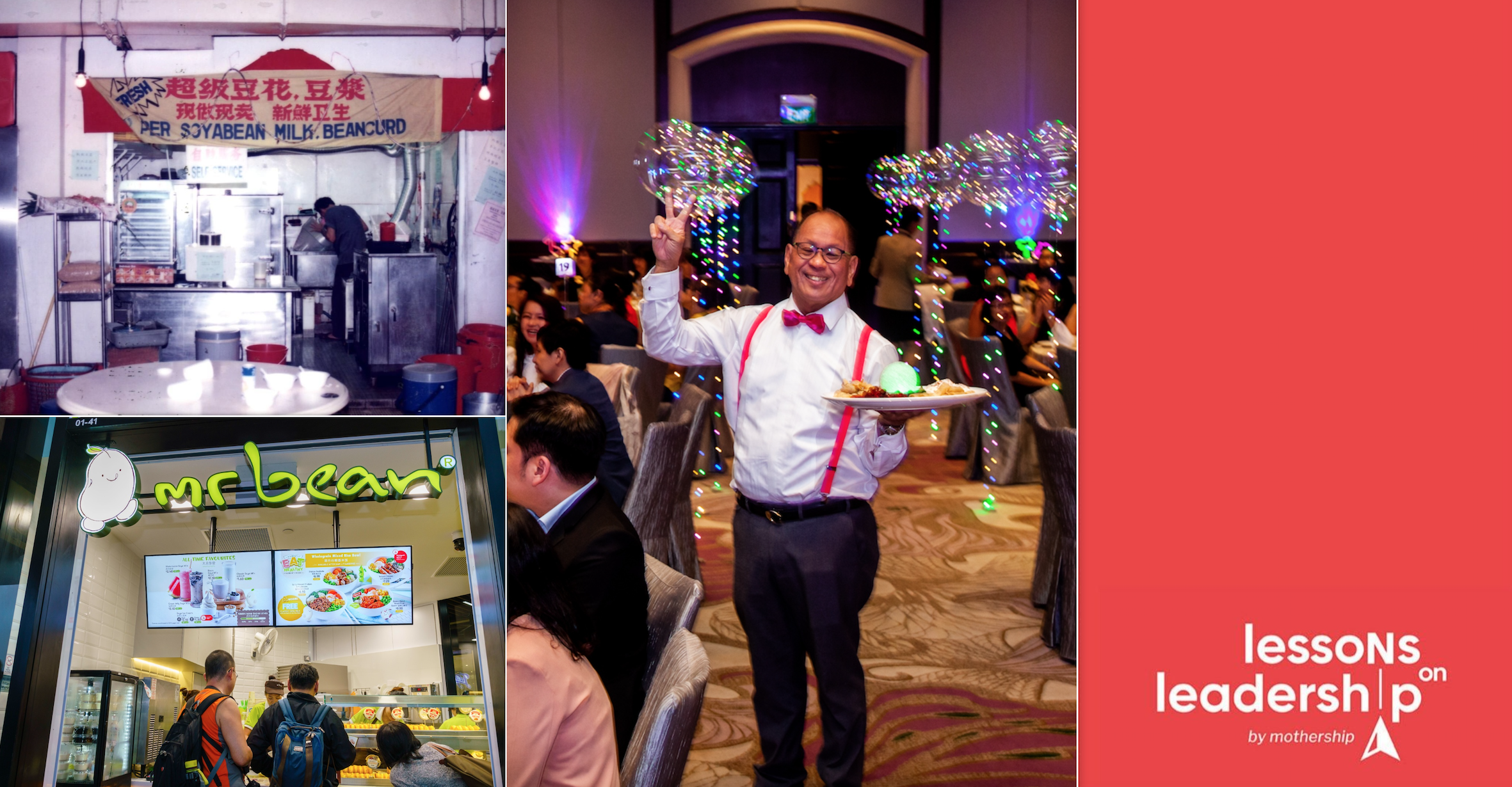Follow us on Telegram for the latest updates: https://t.me/mothershipsg
Soya milk may not be top of mind (not for the millennials and Gen Z, anyway) when it comes to getting a drink, but that hasn't stopped Mr Bean from proliferating across our island.
Even with bubble tea as their obvious nemesis (Mr Bean and the Health Promotion Board have that in common), the soya bean kiosk now has 69 outlets in Singapore, as well as regional presence in Vietnam and Japan.
To our disappointment, there is no big secret behind their success. Or if there was, it is not something that founder Loh Jwee Poh is telling us.
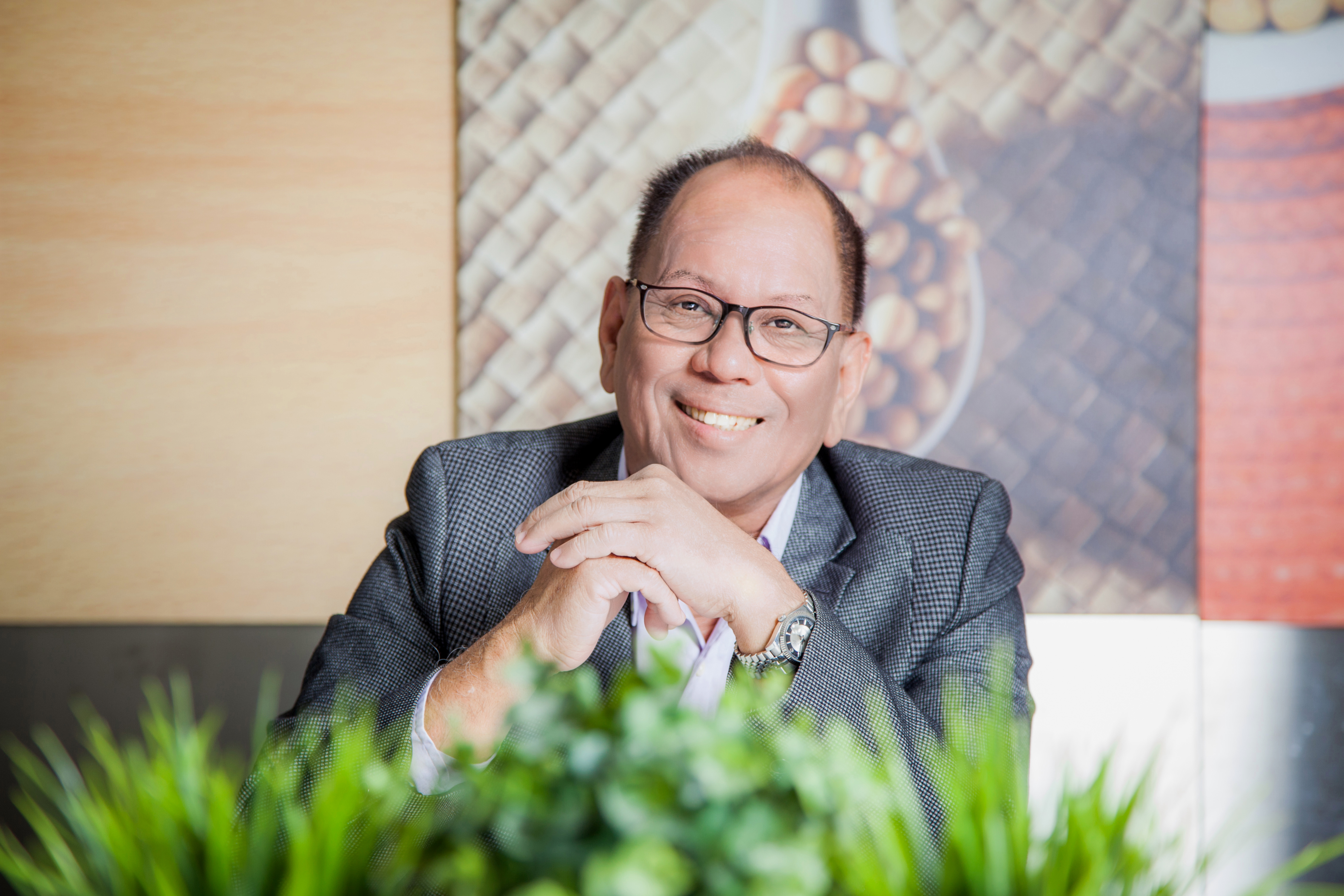 Photo courtesy of Mr Bean
Photo courtesy of Mr Bean
The 61-year-old CEO said in Mandarin,
"There's definitely competition when it comes to beverages. [...] But I also believe in market segmentation. Which group of customers do you want to serve? Each has their own needs and wants. So we focus on our own group. Take care of your own slice of the cake, and there won't be so-called competition.
We won't be greedy and try to take the whole cake for ourselves. We zoom in on our slice, and provide the best in terms of service and products, it's good enough for me."
But what about people like me, a weaning bubble addict (sad but true) who may also drink soya milk from time to time?
Loh immediately comes back with a quip, telling me to alternate the two from Mondays to Saturdays, and go for coffee on Sundays.
Mr Bean co-founder turned Gong Cha CEO
Another "fun" fact that adds to the tension: Mr Bean's co-founder Kang Puay Seng, who is Loh's good friend and former classmate, sold his shares in 2015 and went into the bubble tea business.
Kang, who is responsible for bringing Gong Cha back to our shores after its abrupt exit in 2017, is now the director and master franchisee of the bubble tea brand in Singapore.
Seeing that Loh has been nothing but friendly toward me so far, I took a chance: Are they still friends now?
The short answer is yes, the two are still on good terms, and the split was amicable.
"We dissolved our relationship as co-founders and reverted it to friendship," Loh says.
As for why Kang made the decision to step down from Mr Bean, Loh remains tight-lipped as well:
"This...I'm not in the position to answer this, you should ask him instead," the founder replied, maintaining a tone of cordiality.
A common preoccupation
Bubble tea fad aside, the company has been making a number of high-spirited attempts at remaining relevant—much like any F&B business in Singapore, it seems.
It's been 26 years since Mr Bean's inception, and it has come a long way from being a hawker stall in Chinatown.
A look at their evolution throughout the decades in one cool scroll:
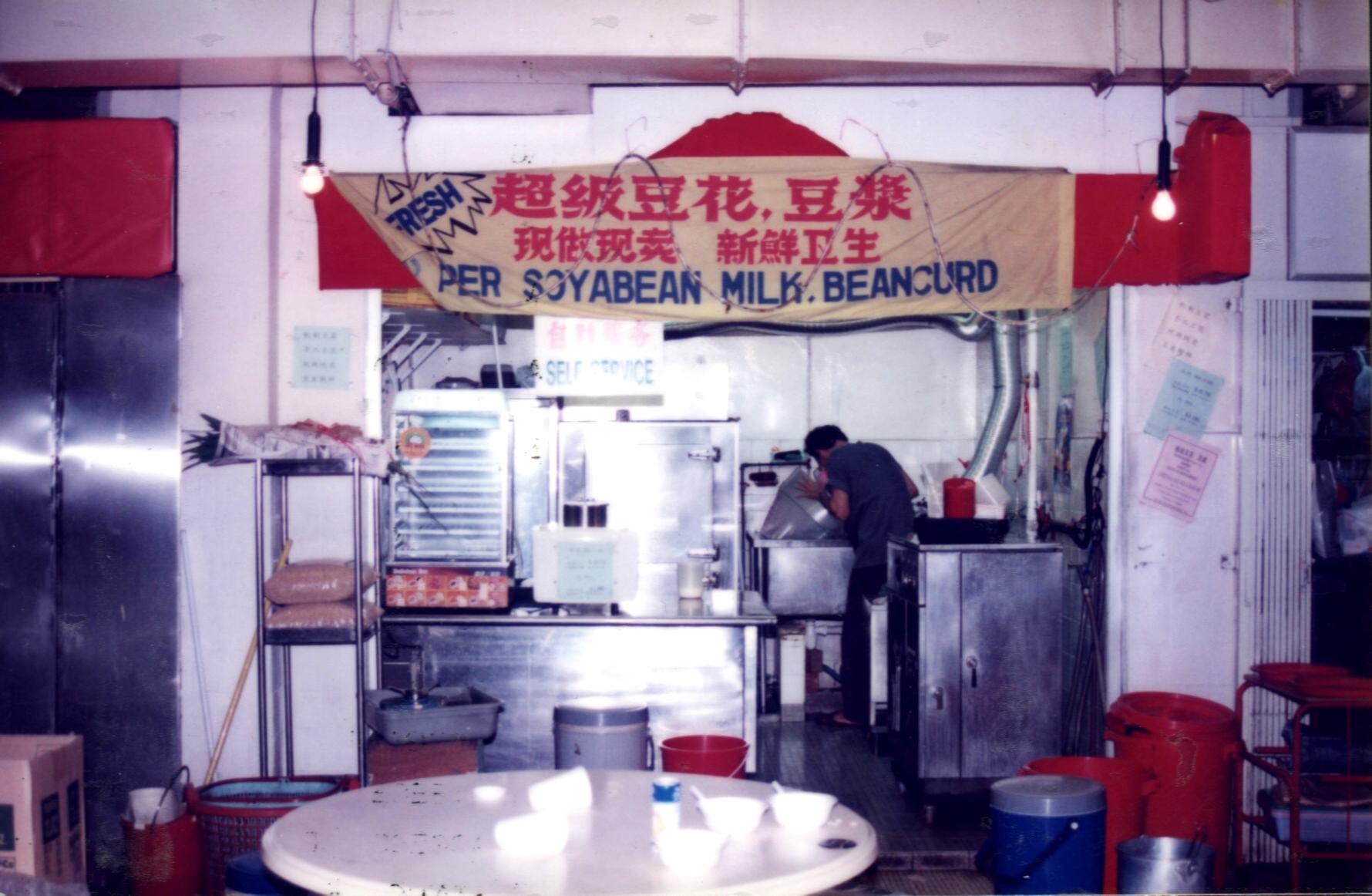 First store in 1995. Photo courtesy of Mr Bean.
First store in 1995. Photo courtesy of Mr Bean.
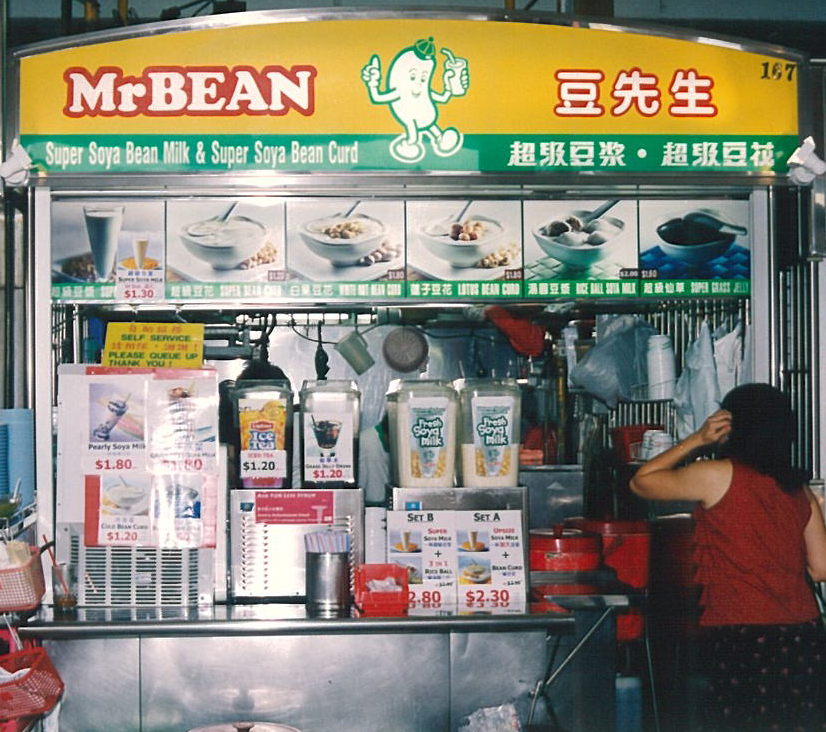 Photo courtesy of Mr Bean
Photo courtesy of Mr Bean
 First shopping mall outlet, in Hougang. Photo courtesy of Mr Bean.
First shopping mall outlet, in Hougang. Photo courtesy of Mr Bean.
From the 90s to mid-2000s:
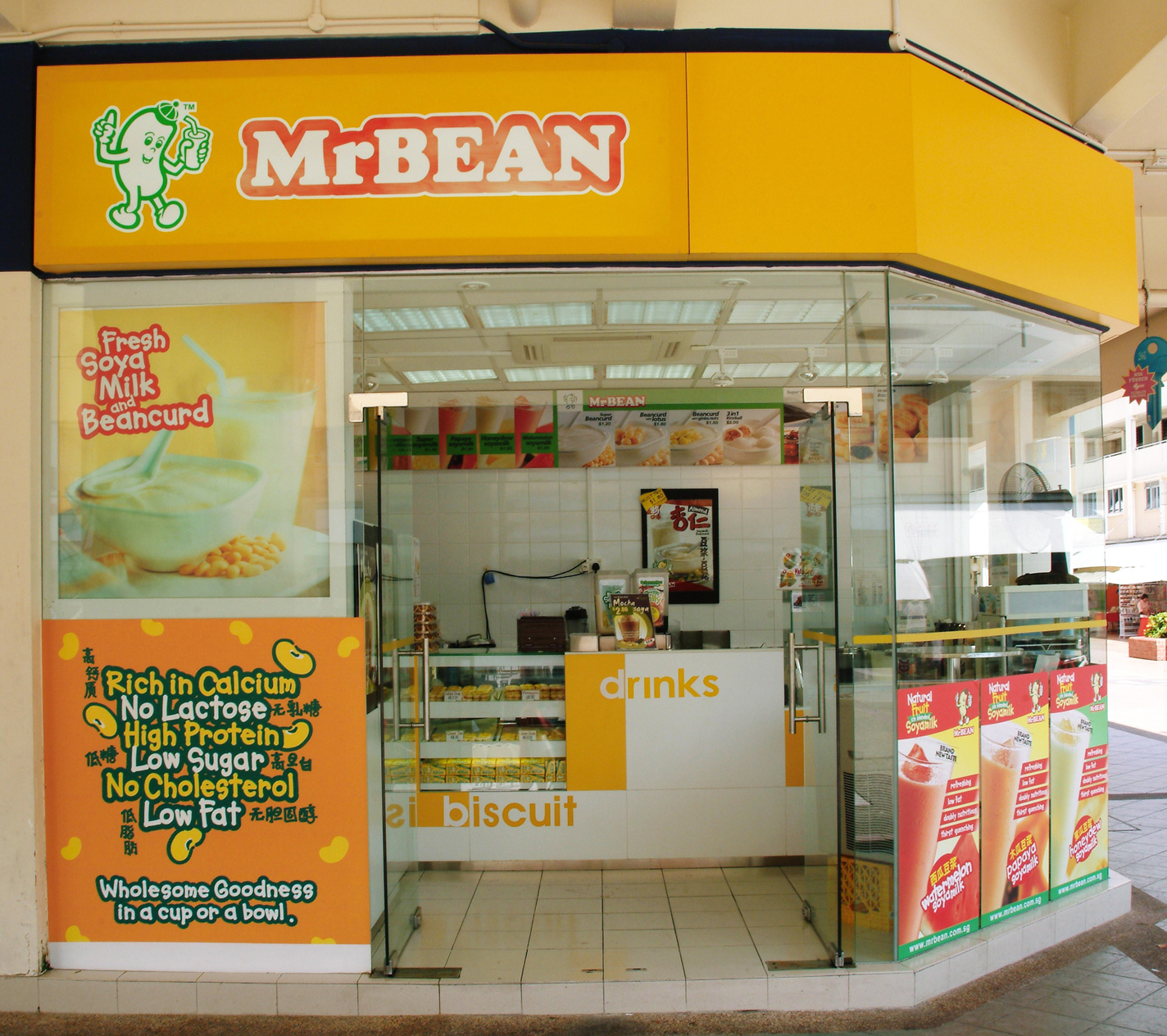 Photo courtesy of Mr Bean
Photo courtesy of Mr Bean
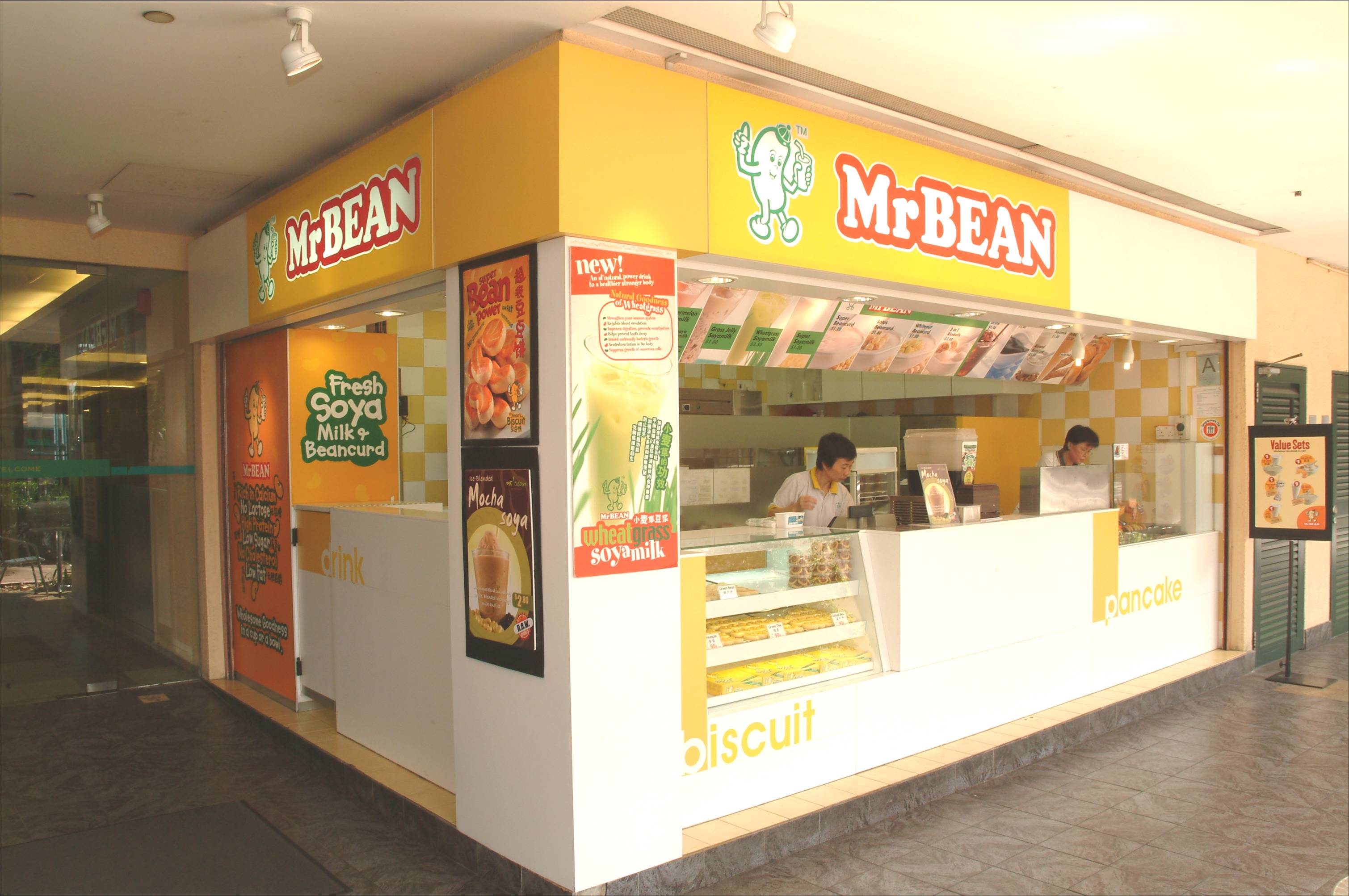 Photo courtesy of Mr Bean
Photo courtesy of Mr Bean
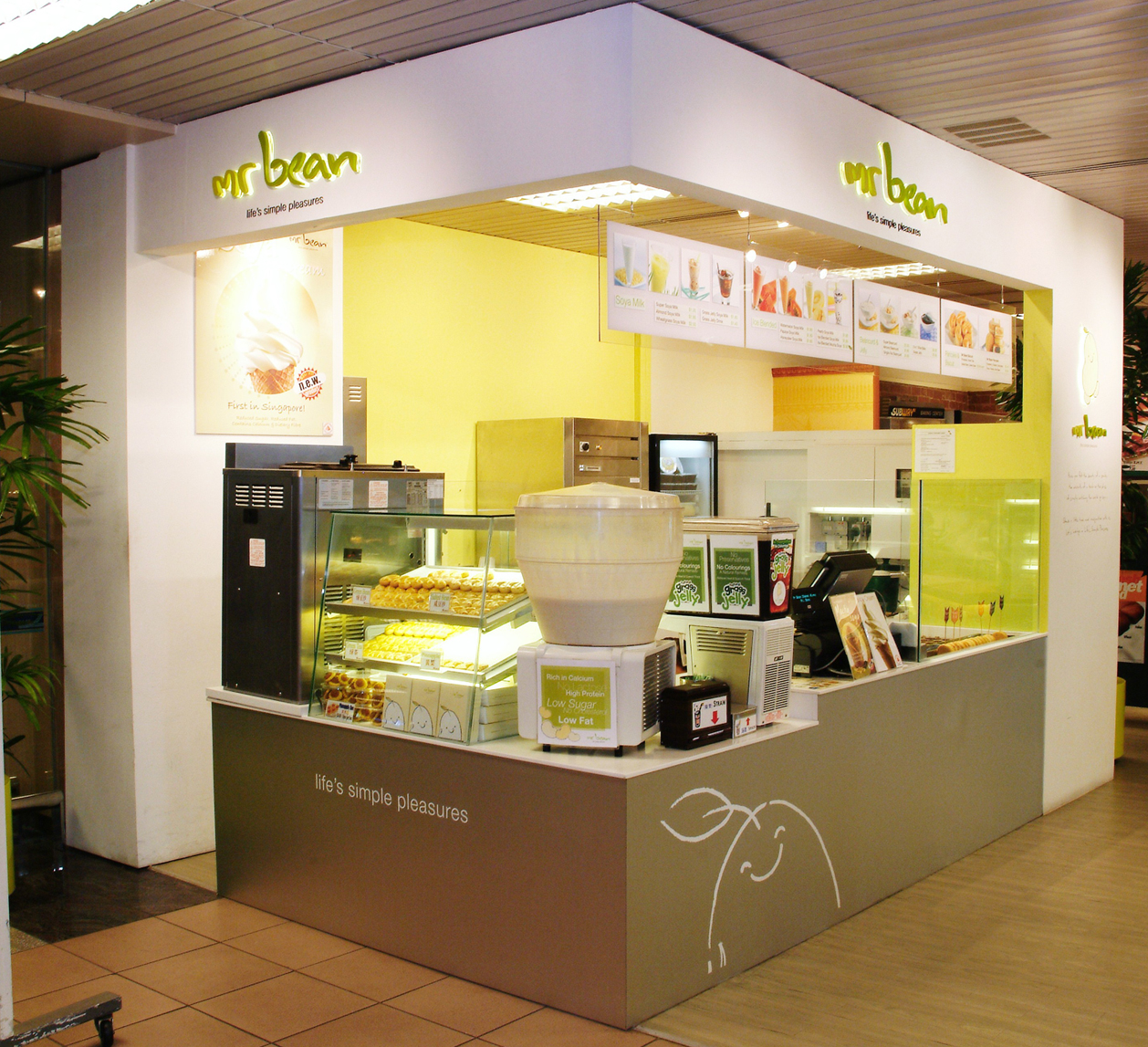 Photo courtesy of Mr Bean
Photo courtesy of Mr Bean
In 2019:
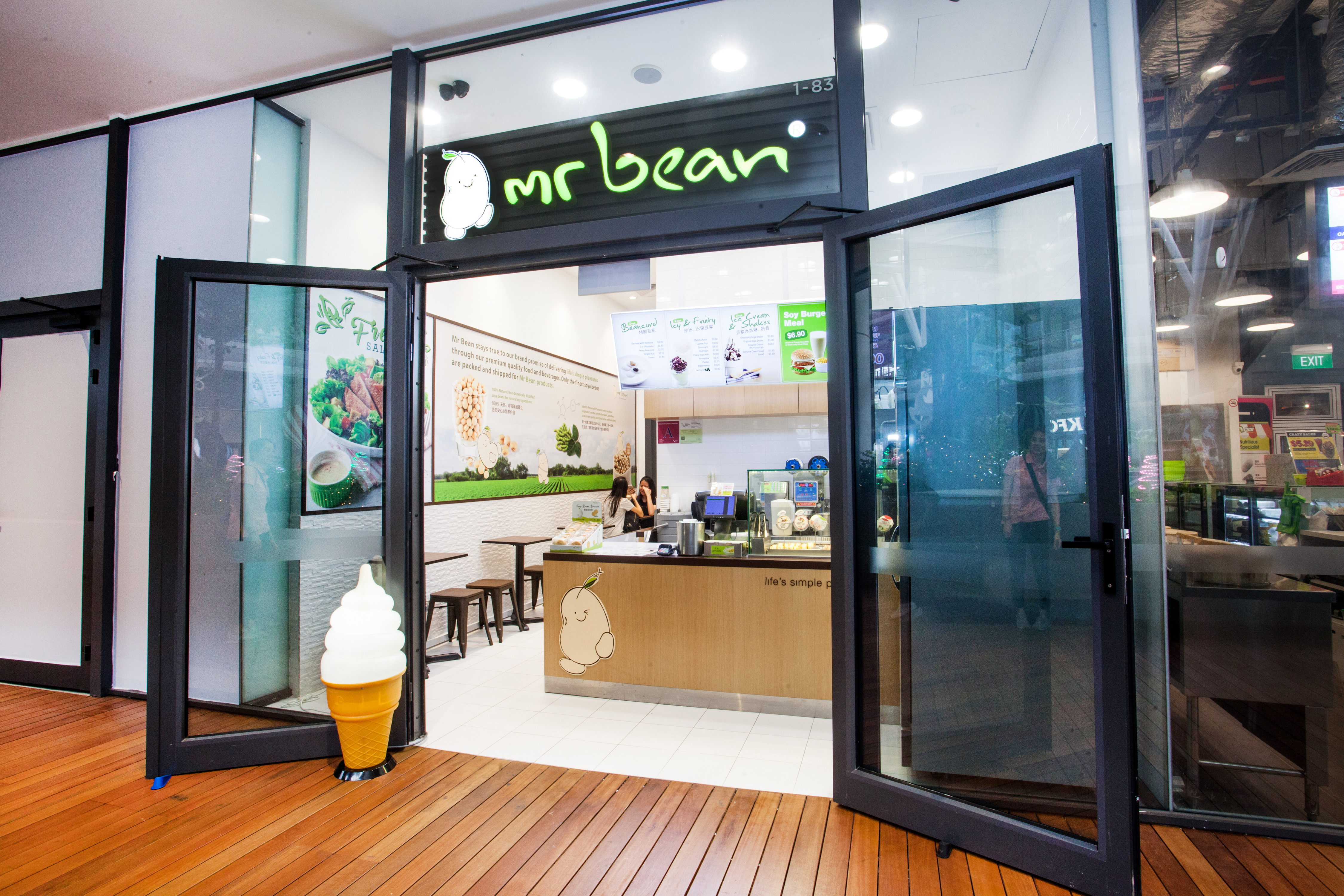 Photo courtesy of Mr Bean
Photo courtesy of Mr Bean
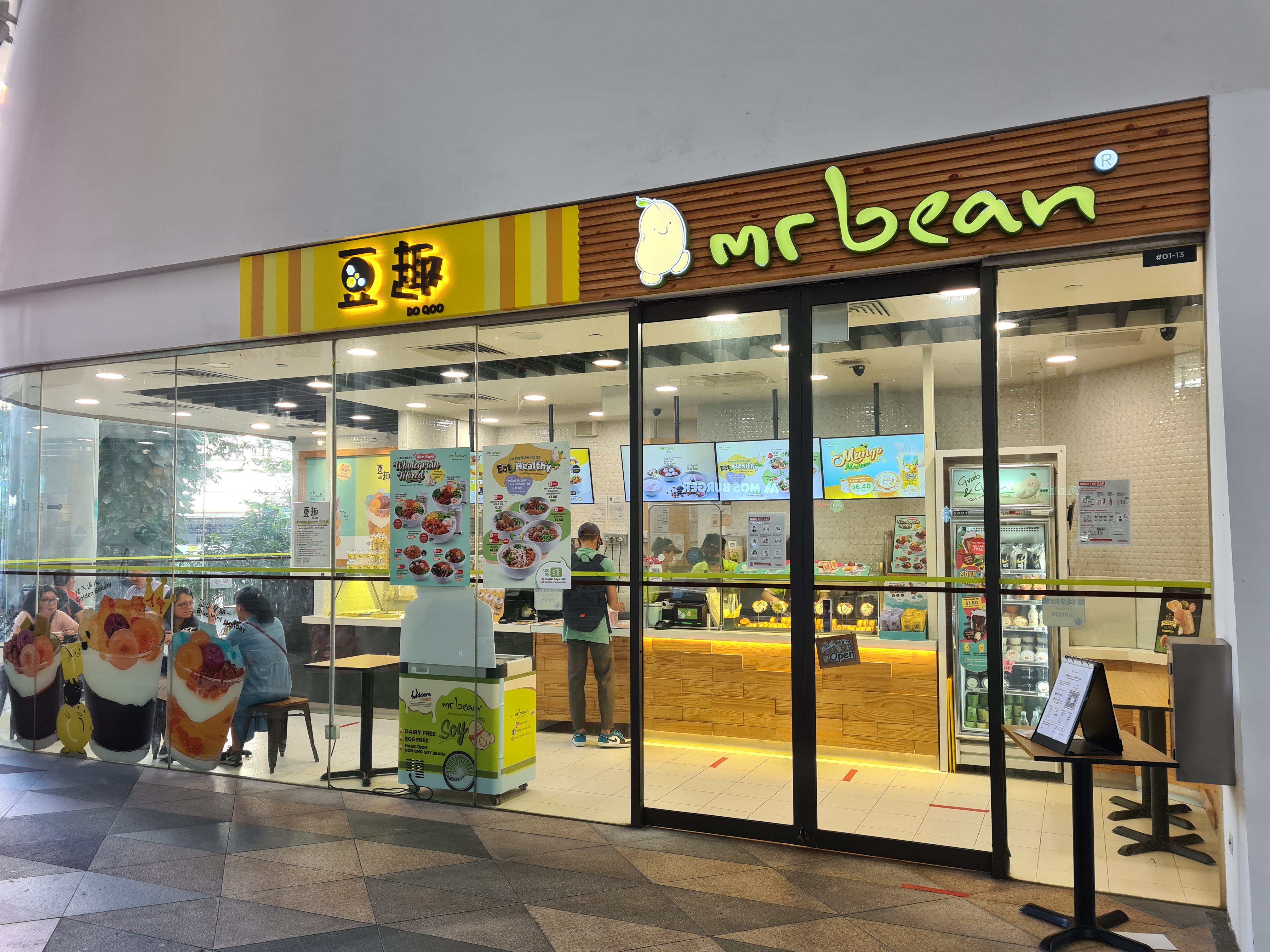 Photo courtesy of Mr Bean
Photo courtesy of Mr Bean
While the brand started out with only traditional soya products, its greatly expanded range now includes items from ice cream to granola bars and even skincare (the soy phytoplacenta masks are selling at S$29.90 for five pieces, if anyone is interested).
 Image courtesy of Mr Bean
Image courtesy of Mr Bean
 Photo courtesy of Mr Bean
Photo courtesy of Mr Bean
All part of the plan to attract younger customers, as is their stratagem to go for young hires.
A peek at their office reveals employees that run the gamut in terms of age, from those who were born 20-something years ago (I think) to those who have been hired for the same amount of time.
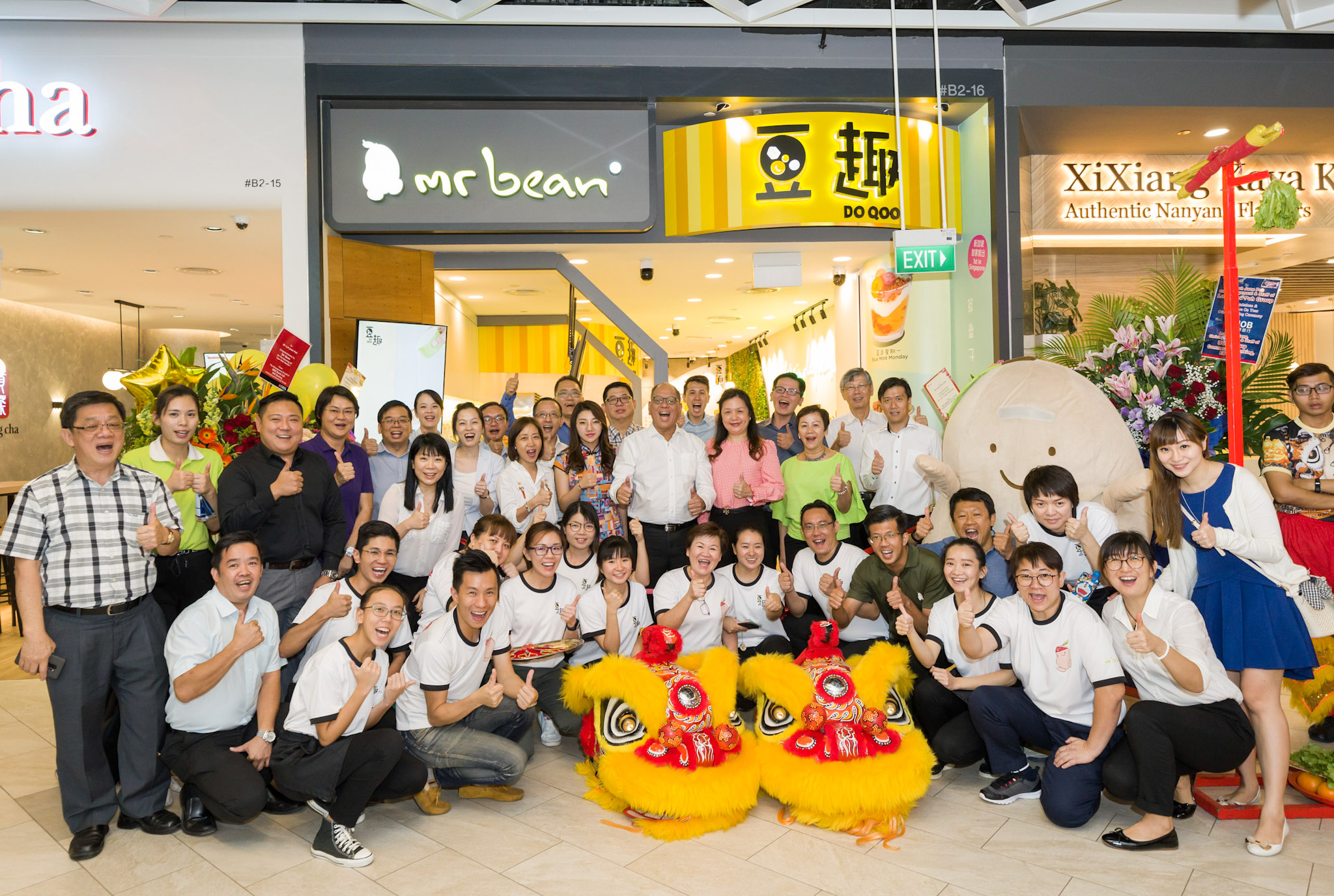 A very cheery, pre-Covid photo. Photo courtesy of Mr Bean.
A very cheery, pre-Covid photo. Photo courtesy of Mr Bean.
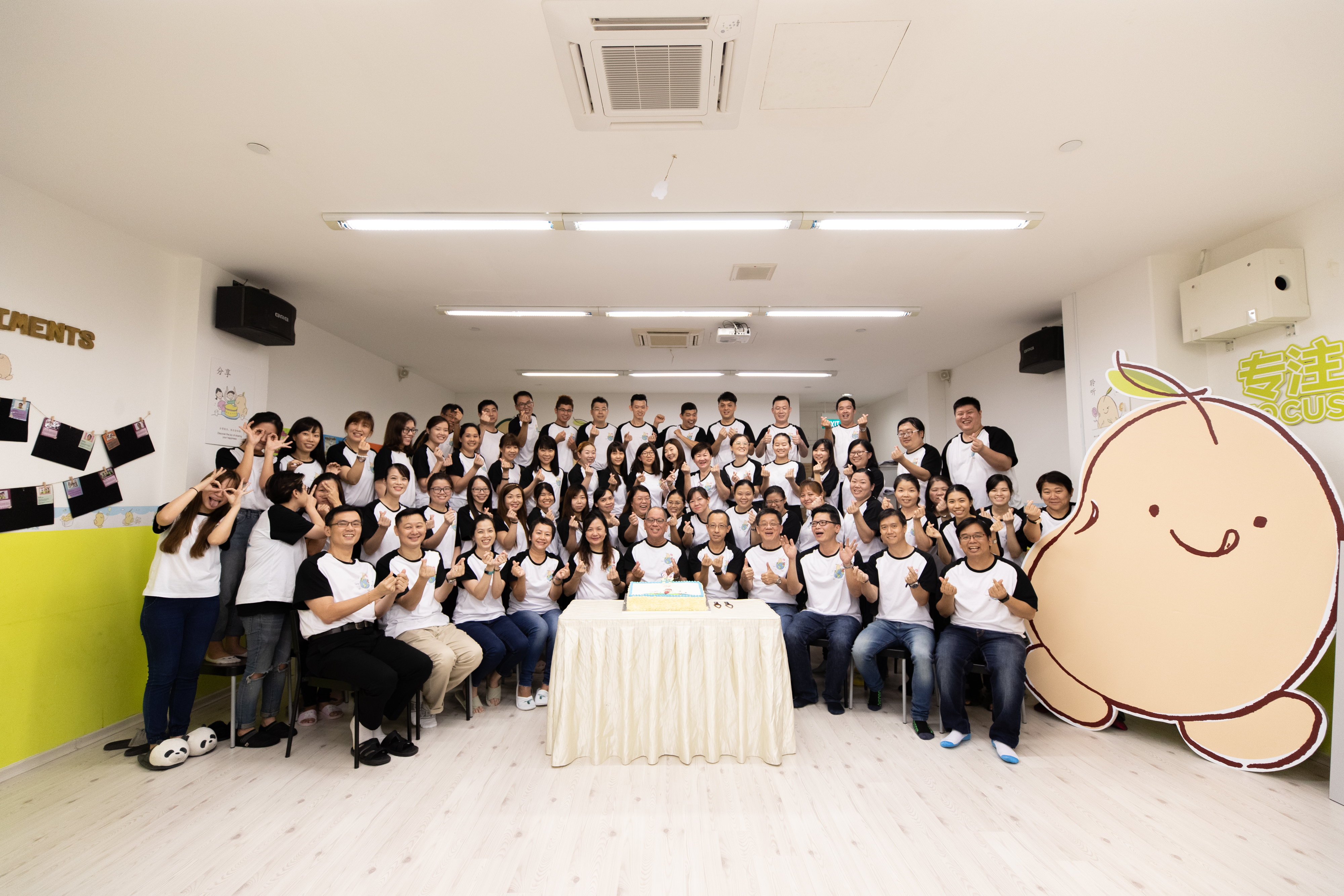 Ditto. Photo courtesy of Mr Bean.
Ditto. Photo courtesy of Mr Bean.
Among them is Loh's second child, a 27-year-old son who has been working in the business development department for more than a year.
Loh makes it clear that his son is not merely here to "help out" — "He's properly working here, and we have expectations of him," the founder emphasises.
The 27-year-old is contributing in new areas and developing fresh projects, as current duties are already "well parcelled out," according to dad.
However, Loh manages to remain vague (whether deliberately or not) on his son's exact job scope, despite being chatty.
Micromanaging a dirty word?
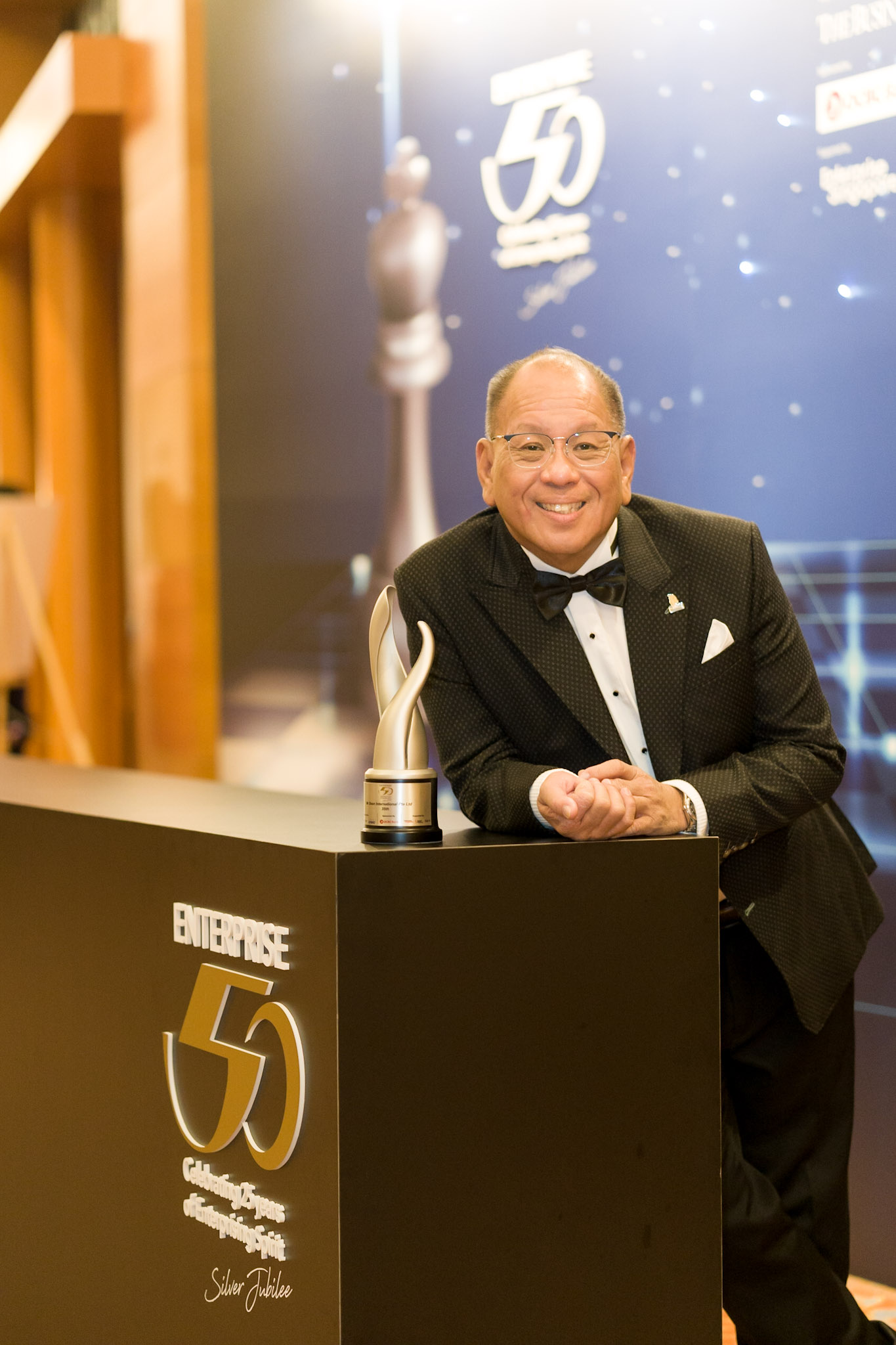 Photo courtesy of Mr Bean
Photo courtesy of Mr Bean
In addition to familial participation, Loh also has a solid management team that he is "very grateful" for.
The team consists of more than 10 members, all of whom are younger than Loh.
What he has given them, Loh tells us, is a solid foundation that they can continue to build on.
"The company has been around for 26 years. I've brought it to where it is today. But how do I bring it to the next level? I need new blood, new ideas, new drive, new passion."
Loh adds that he does not worry about the day-to-day operations— this has long been handed over to the team, who have no lack of ideas. It's a collaborative process where Loh and the team work on charting the company's growth together.
Nonetheless, Loh admits that he can be "a little more conservative" in certain areas, preferring instead to handle them personally.
While micromanaging has become a dirty word in leadership, it is not something that Loh entirely disassociates himself from.
This is especially so when it comes to matters of values and principles outside of creative bounds.
"Don't micromanage, right? Leave it alone, give people space to execute their ideas. This is true, to a certain extent, under certain circumstances. But for some processes and principles, we have to stand by those. [...] If someone can't align with our core values, then I'll have to interfere lah."
The consequences, however, vary from person to person.
For Loh, it depends on what kind of mistake has been committed, and who has committed it.
Those in the upper management are generally deemed more culpable, as higher levels of accountability are expected of them.
"But if they're someone younger, with less experience, then we'll guide them, and see it as a chance for them to grow. I think it's a case-by-case basis. There is no hard and fast rule in dealing with mistakes," he explains.
Another thing that occupies Loh is the company's long-term direction as well as the "end result[s]," such as whether the colleagues are happy in matters of salary and welfare—crucial for any company in retaining its pool of talents.
But how does one attract such talents?
"I'll tell you this: they might not be talents when they join, but they become talents here," Loh says quite unabashedly.
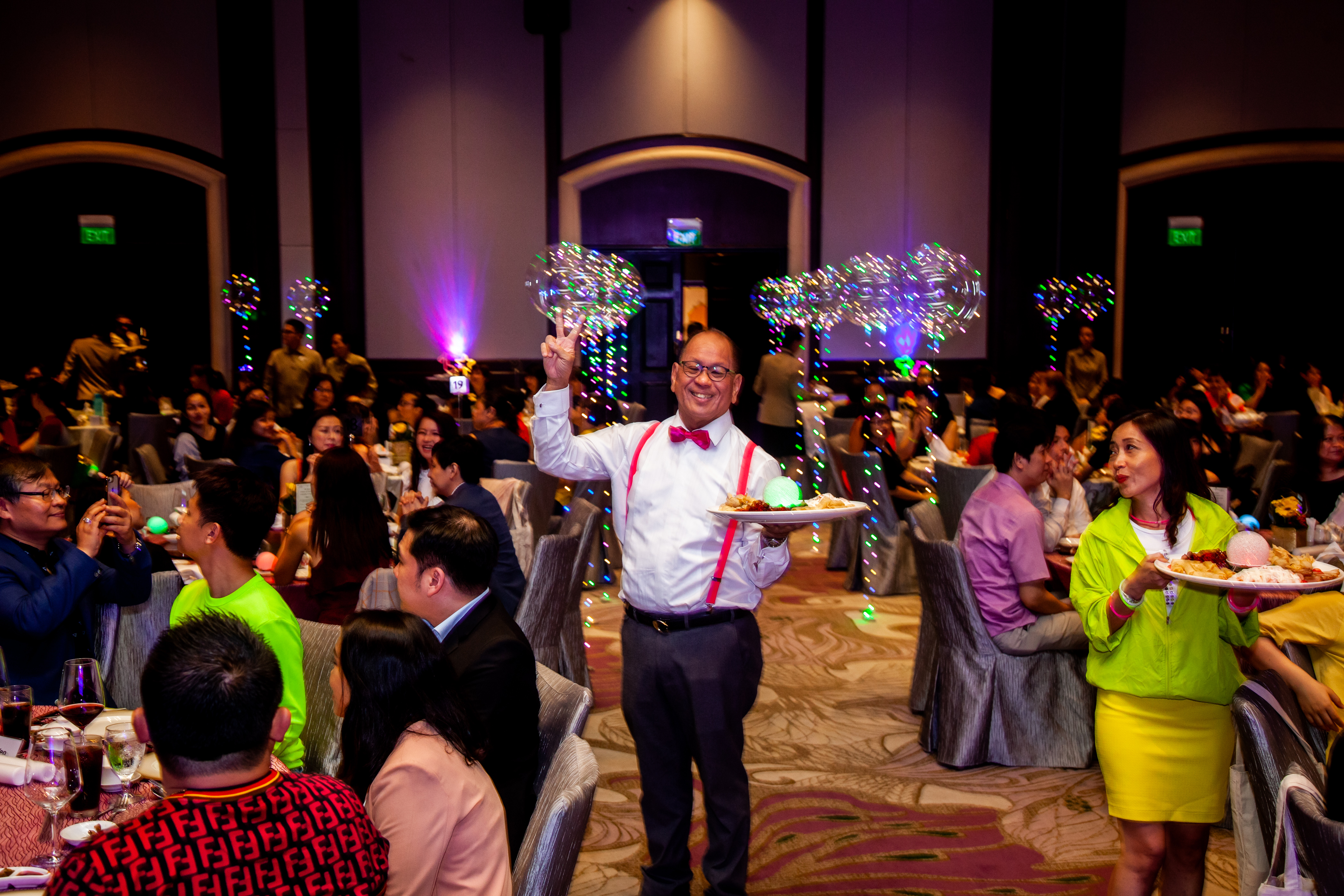 Photo courtesy of Mr Bean
Photo courtesy of Mr Bean
In this respect, the founder looks for the "right person, with the right attitude, some who has a genuine passion for the job."
"It's not that we have a great training or mentorship system here," he continues honestly. "But I strongly believe in giving them [employees] the opportunity to try."
Loh sees himself as a "stage" for employees to excel, regardless of their skillsets.
"Ultimately, we must let the young ones perform," Loh concludes.
On failing to capture other countries
But even with trusted help, it's been a bumpy ride along the way.
About a decade ago, Mr Bean had ambitions to establish a foothold beyond Singapore, earnestly stepping up on overseas expansion to countries like Malaysia, the Philippines, China, Japan and Korea.
They met with failure.
"The results were not very good. We've stopped operations for almost all of them," Loh registers in an even tone.
They made use of the franchise method, which Loh eventually learnt was "immature" for their business model then.
But it would be simplistic to boil it down to one reason.
"There were other factors involved as well. Firstly, the capability and experience of our franchisees mattered. Market conditions. And our own ability to manage these franchisees, and transfer the know-how to them. And whether there is chemistry on both sides. These were just some of the reasons we failed."
He adds: "But we did learn from it. You can see we've not been expanding overseas recently."
At present moment, Mr Bean has one store in Japan, and 12 in Vietnam.
It's been a common refrain for the past couple of years, but where they used to be doing "ok," things have hit a roadblock in Vietnam due to Covid-19.
The company is therefore focusing its resources on Singapore, hoping to add another 30-ish outlets to their portfolio, making it a total of 100 stores on this tiny island alone.
"But we won't be rash in opening the new outlets, cause of the Covid situation. We don't know what the road is like ahead, but we'll do it with cautious planning. We have to co-exist with the virus. [...] We won't stop just because of Covid."
That is not to say that they have given up on an international presence, however. When things get better, Loh intends seek out further opportunities in the region, with certain countries already in mind.
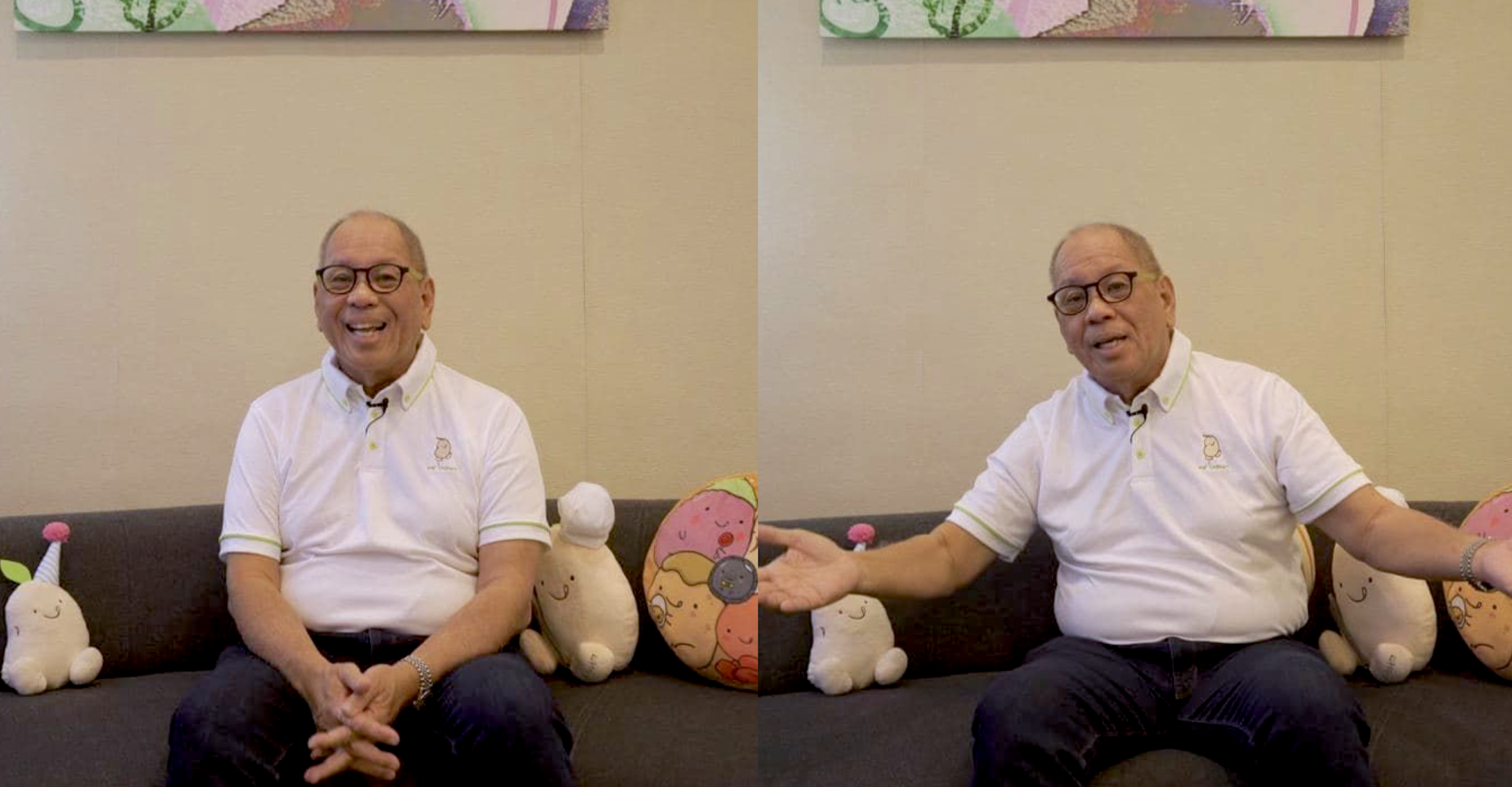 Photos by Hor Tengteng
Photos by Hor Tengteng
He also leaves me with some pithy advice towards the end of our interview:
"The situation is unstable now, so there are a lot of things where you can't have a long-term plan, but you can have a long-term direction. But maybe the planning has to be short-term, so that we can continually adjust and adapt it to the situation."
When I announce that I have no more questions for him, Loh exclaims, "So few only??"
Upon hearing that he has answered well, the founder jokes,
"Sorry ah, maybe eight minutes not enough for the video, [it'll have to be] 10 minutes. But not too long. The young folks will be bored."
Watch the full interview with Loh on Facebook:
Lessons on Leadership is a Mothership series about the inspiring stories of Singapore’s business leaders and entrepreneurs, as well as the lessons and values we can learn from their lived experiences.
Top images courtesy of Mr Bean
If you like what you read, follow us on Facebook, Instagram, Twitter and Telegram to get the latest updates.
